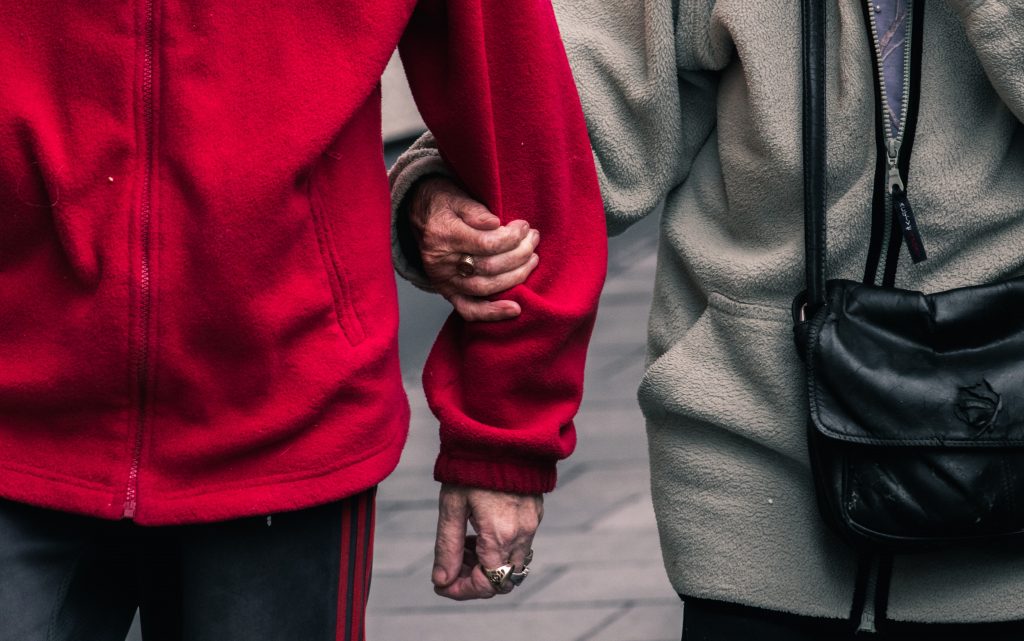Tracey Martin on the care crisis, how it’s affected her, and how Quakers might respond.

‘The origins of the crisis of care predate the financial crisis of 2008 and the slashing of welfare spending which followed. The deeper cause of this crisis is a fundamental failure to value – and appropriately reward – the centrality of relationship in all care.’ Madeleine Bunting in Labours of Love: The Crisis of Care (2020)
The pandemic and the resulting lockdowns pushed me into doing something I had been avoiding or at least only doing partially. Like many others, I took the decision to stop the paid carers who came to look after my mum and dad twice a day and become their primary carer. As a feminist, as someone who valued the autonomy and freedom a good education and interesting jobs had given me, it was not something I had seen as my lot.
Organising care for my parents before the pandemic had been messy and frustrating. I had seen how adult social care services were straining to cope, how low-paid care workers rushed from one person to the next, often with inadequate information about what needed to be done and how. I saw how many of them genuinely cared about the people they were caring for and were frustrated by this.
Now a carer myself, I learned how even when you care about someone, you can feel resentful about caring for them – the monotony of the tasks, the interruptions to your life, the small obsessions and anxieties of people who are not able to do daily tasks. And I felt the grief that comes with watching the slow deterioration of someone you love, the panic when someone falls, the sadness that they can’t enjoy the things they used to.
We have all been or will be cared for by someone – as children, in hospital, in an emergency, when we suffer a loss, as we get older. Almost everyone will, at some period in their life, care for someone – as a parent, in our jobs, for our own parents, as volunteers. The care of others is integral to society but it has been consistently devalued and made subject to market forces.
As Quakers we are called to care for each other – both practically and spiritually. Relief of the suffering of others has been part of our witness for centuries, linked to the practices of answering that of God in everyone and living out our faith in the world. Quakers have been active in improving care for those with mental health problems, for prisoners and for those affected by war.
But what do we have to say about care now? In the pandemic we have seen that, although it is evident that social and health care is essential, they continue to be underfunded and care workers and nurses continue to be poorly paid. Meanwhile unpaid carers, of which a significant number are children, feel isolated and are often uncared for themselves. Women continue to make up the majority of paid and unpaid care workers. Those who need care find it ever more difficult to access and are constantly required to prove that they are ‘eligible’.
‘The true measure of any society can be found in how it treats its most vulnerable members’ – Mahatma Gandhi
We know that care requires time and emotional energy. People don’t just want things done to them and for them, they want to be valued and have dignity. Care done well enables and empowers, it does not belittle or begrudge.
One of the demands of the Build Back Better campaign is to protect and invest in our public services. This would be a start but, as Quakers, maybe we need to go deeper than this. How can we work for care services and support for carers that starts with relationships that acknowledge the unique personhood of everyone involved? How can we build a society and an economy with care for one another and the earth at its centre?
As part of this conversation, we are developing The Care Crisis: A Quaker view, if you want to explore a Quaker approach to care you can join the taster session on 13 May.



